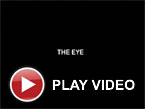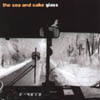 Hot on the heels of this year's full-length release, One Bedroom, The Sea and Cake continue to indulge in their newfound electronic revelry with this seven-track EP. Glass,which clocks in at just over 37 minutes, is comprised of four non-albumtracks and three remixes of songs from the album. Versions One and Twoof "To the Author" carry the synth melodies one step further thansimilarly constructed tracks on One Bedroom. The tempo isnoticably quicker than the usual Sea and Cake fare, and buzzing,spacious keyboards (which sound much like those used recently on theirplayful cover of David Bowie's "Sound and Vision") provide an excellentcompliment to the processed guitars and Sam Prekop's bouncy vocals."Traditional Wax Coin" goes in a slightly different direction with achilled-out—even minimal—jazz infusion. "An Echo In," which is closestin style to their latest album, has nice melody and instrumentation,but ultimately suffers from flat, lukewarm vocals. The remixes are doneby kindred indie spirits Stereolab and Broadcast (the latter of whomThe Sea and Cake toured with in 2000), and Detroit technohead CarlCraig. Stereoab's "Tea and Cake" remix of "Hotel Tell" strips theoriginal down to a lush, exotic lullabye, while Broadcast lend"Interiors" a heavy dose of their own tripped-out, psychedelia withloads of reverb and shards of synths. Craig's reworking of "Hotel Tell"turns the original into an ass-shakin', bass-thumping dancefloor cut,which is bound to ellicit either a chuckle or a shudder from longtimefans of the band.
Hot on the heels of this year's full-length release, One Bedroom, The Sea and Cake continue to indulge in their newfound electronic revelry with this seven-track EP. Glass,which clocks in at just over 37 minutes, is comprised of four non-albumtracks and three remixes of songs from the album. Versions One and Twoof "To the Author" carry the synth melodies one step further thansimilarly constructed tracks on One Bedroom. The tempo isnoticably quicker than the usual Sea and Cake fare, and buzzing,spacious keyboards (which sound much like those used recently on theirplayful cover of David Bowie's "Sound and Vision") provide an excellentcompliment to the processed guitars and Sam Prekop's bouncy vocals."Traditional Wax Coin" goes in a slightly different direction with achilled-out—even minimal—jazz infusion. "An Echo In," which is closestin style to their latest album, has nice melody and instrumentation,but ultimately suffers from flat, lukewarm vocals. The remixes are doneby kindred indie spirits Stereolab and Broadcast (the latter of whomThe Sea and Cake toured with in 2000), and Detroit technohead CarlCraig. Stereoab's "Tea and Cake" remix of "Hotel Tell" strips theoriginal down to a lush, exotic lullabye, while Broadcast lend"Interiors" a heavy dose of their own tripped-out, psychedelia withloads of reverb and shards of synths. Craig's reworking of "Hotel Tell"turns the original into an ass-shakin', bass-thumping dancefloor cut,which is bound to ellicit either a chuckle or a shudder from longtimefans of the band. Hot on the heels of this year's full-length release, One Bedroom, The Sea and Cake continue to indulge in their newfound electronic revelry with this seven-track EP. Glass,which clocks in at just over 37 minutes, is comprised of four non-albumtracks and three remixes of songs from the album. Versions One and Twoof "To the Author" carry the synth melodies one step further thansimilarly constructed tracks on One Bedroom. The tempo isnoticably quicker than the usual Sea and Cake fare, and buzzing,spacious keyboards (which sound much like those used recently on theirplayful cover of David Bowie's "Sound and Vision") provide an excellentcompliment to the processed guitars and Sam Prekop's bouncy vocals."Traditional Wax Coin" goes in a slightly different direction with achilled-out—even minimal—jazz infusion. "An Echo In," which is closestin style to their latest album, has nice melody and instrumentation,but ultimately suffers from flat, lukewarm vocals. The remixes are doneby kindred indie spirits Stereolab and Broadcast (the latter of whomThe Sea and Cake toured with in 2000), and Detroit technohead CarlCraig. Stereoab's "Tea and Cake" remix of "Hotel Tell" strips theoriginal down to a lush, exotic lullabye, while Broadcast lend"Interiors" a heavy dose of their own tripped-out, psychedelia withloads of reverb and shards of synths. Craig's reworking of "Hotel Tell"turns the original into an ass-shakin', bass-thumping dancefloor cut,which is bound to ellicit either a chuckle or a shudder from longtimefans of the band.
Hot on the heels of this year's full-length release, One Bedroom, The Sea and Cake continue to indulge in their newfound electronic revelry with this seven-track EP. Glass,which clocks in at just over 37 minutes, is comprised of four non-albumtracks and three remixes of songs from the album. Versions One and Twoof "To the Author" carry the synth melodies one step further thansimilarly constructed tracks on One Bedroom. The tempo isnoticably quicker than the usual Sea and Cake fare, and buzzing,spacious keyboards (which sound much like those used recently on theirplayful cover of David Bowie's "Sound and Vision") provide an excellentcompliment to the processed guitars and Sam Prekop's bouncy vocals."Traditional Wax Coin" goes in a slightly different direction with achilled-out—even minimal—jazz infusion. "An Echo In," which is closestin style to their latest album, has nice melody and instrumentation,but ultimately suffers from flat, lukewarm vocals. The remixes are doneby kindred indie spirits Stereolab and Broadcast (the latter of whomThe Sea and Cake toured with in 2000), and Detroit technohead CarlCraig. Stereoab's "Tea and Cake" remix of "Hotel Tell" strips theoriginal down to a lush, exotic lullabye, while Broadcast lend"Interiors" a heavy dose of their own tripped-out, psychedelia withloads of reverb and shards of synths. Craig's reworking of "Hotel Tell"turns the original into an ass-shakin', bass-thumping dancefloor cut,which is bound to ellicit either a chuckle or a shudder from longtimefans of the band. Aaron Funk is a musical sadist, and a prolific one. His predilectionfor relentless, uncompromising breakbeats has gained his main musicaloutlet Venetian Snares a lot of cred among fans of power electronics,drum n' bass and hardcore industrial. Dubbed "drill n' bass" by peoplewho like to name things, Venetian Snares' sound palate is not all thatfar from his electronic contemporaries Squarepusher and Aphex Twin.What Funk brings to the table that is original is a sense of sleazy,dark menace. All of his numerous albums thus far have a persistentlyviolent atmosphere, with sneaky attacks of extreme, head-poundingrhythms. He is a "trickster" of sorts, beginning a track with gentleambience or light jazz before suddenly shocking the listener with acacophony of stuttering, pulsating drum programming and bizarredialogue samples involving child murder, rape and cannibalism. Releasedearlier this year, Winter in the Belly of a Snake follows in this tradition, but is somewhat of a departure from the tried-and-true Snares formula perfected on 2001's Doll Doll Doll.There is an increased emphasis on structured songs on this outing, andwith it comes the unexpected use of melody as the backbone for histypically schizophrenic beats. I am not altogether convinced that thisapproach really makes sense for Venetian Snares, but there are someworthy songs here. The disc opens with "Dad," a rather unconvincing odeto Funk's father that is overwhelmed by the drum programming and neverreally finds its footing. "Stairs Song" begins with a spookyhorror-soundtrack keyboard melody that eventually evolves into afull-blown splatter of distorted beats. There are some shorter,transitional synth tracks scattered throughout the album that attemptto add to the atmosphere of menace, but are basically pointless filler."Suffocate" finds a clipped, trebly beat and works in a surprisingsample of an angelic female singer, before mutating into a dark digitaldub song. Funk increases the internal drama of these songs byoccasionally interrupting the beat for queasy ambient interludes, whichleave the listener wondering when they will be attacked again by thesadistic rhythms. The album's most bizarre track is a cover of Danzig's"She," which sounds pretty much the same as the original. If Funk istrying to be funny with this odd choice of cover songs, he succeeds. Ifhe's actually trying to be serious, he fails. "Sink Snow Angel" beginswith a string melody reminiscent of the Kronos Quartet's theme to Requiem for a Dreambut quickly turns into a nightmare of Atari-on-amphetamine digitalinsanity. The disc ends with its longest track, "Icosikaipent", wherecold, phased metallic drum explosions keep threatening to turn intosomething interesting, but end up going nowhere. Winter is not a spectacular release for Aaron Funk, instead it's just another minor blip in his impressive discography.
Aaron Funk is a musical sadist, and a prolific one. His predilectionfor relentless, uncompromising breakbeats has gained his main musicaloutlet Venetian Snares a lot of cred among fans of power electronics,drum n' bass and hardcore industrial. Dubbed "drill n' bass" by peoplewho like to name things, Venetian Snares' sound palate is not all thatfar from his electronic contemporaries Squarepusher and Aphex Twin.What Funk brings to the table that is original is a sense of sleazy,dark menace. All of his numerous albums thus far have a persistentlyviolent atmosphere, with sneaky attacks of extreme, head-poundingrhythms. He is a "trickster" of sorts, beginning a track with gentleambience or light jazz before suddenly shocking the listener with acacophony of stuttering, pulsating drum programming and bizarredialogue samples involving child murder, rape and cannibalism. Releasedearlier this year, Winter in the Belly of a Snake follows in this tradition, but is somewhat of a departure from the tried-and-true Snares formula perfected on 2001's Doll Doll Doll.There is an increased emphasis on structured songs on this outing, andwith it comes the unexpected use of melody as the backbone for histypically schizophrenic beats. I am not altogether convinced that thisapproach really makes sense for Venetian Snares, but there are someworthy songs here. The disc opens with "Dad," a rather unconvincing odeto Funk's father that is overwhelmed by the drum programming and neverreally finds its footing. "Stairs Song" begins with a spookyhorror-soundtrack keyboard melody that eventually evolves into afull-blown splatter of distorted beats. There are some shorter,transitional synth tracks scattered throughout the album that attemptto add to the atmosphere of menace, but are basically pointless filler."Suffocate" finds a clipped, trebly beat and works in a surprisingsample of an angelic female singer, before mutating into a dark digitaldub song. Funk increases the internal drama of these songs byoccasionally interrupting the beat for queasy ambient interludes, whichleave the listener wondering when they will be attacked again by thesadistic rhythms. The album's most bizarre track is a cover of Danzig's"She," which sounds pretty much the same as the original. If Funk istrying to be funny with this odd choice of cover songs, he succeeds. Ifhe's actually trying to be serious, he fails. "Sink Snow Angel" beginswith a string melody reminiscent of the Kronos Quartet's theme to Requiem for a Dreambut quickly turns into a nightmare of Atari-on-amphetamine digitalinsanity. The disc ends with its longest track, "Icosikaipent", wherecold, phased metallic drum explosions keep threatening to turn intosomething interesting, but end up going nowhere. Winter is not a spectacular release for Aaron Funk, instead it's just another minor blip in his impressive discography. 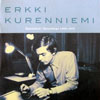 This CD is a treasure trove, mother lode, holy grail and the missinglink in the fossil record of electronic music. Kurenniemi'sachievements in the design of revolutionary instruments stand apartboth in the technical aspects and in how they introduced radically newways of making music. The recordings on this CD show just how far aheadof his time he was. It includes his own musical creations, somepromotional material for the instruments he tried to sell, someexperiments and a couple of collaborations. The breadth of the materialis so big, from sequenced Bach through tape collage to improvised tapeand feedback noise performance, that I can only mention a few. Theopening two tracks are crucial for Pan Sonic fans. They feature hisElectronic Quartet (Sähkökvartetti), a device with four instruments inone, and a huge, outrageously 90s sound. (If you doubt that Kurenniemiwas responsible for the Pan Sonic sound, try a little web research.)Kurenniemi's psychedelic tape collage, "Hana," is beautifully ugly anddream-like while the more academic sounding "Preludi" is a piercingmechanical composition in mutating repeating phrases and freeglissandi. "Virsi," another collage piece, shows off the composer'srather Finnish taste for the absurd as well as for the abstract,combining electronic sounds, various samples of voices, movies andmusic with tape effects, a long soaring multi-tone glissando, awonderful plaintive deep feedback solo. Among all the dazzlinginvention and sophistication throughout the CD it's the earliestrecording that I love the most. Inspired by the massive turbines of apower plant, "On-Off" is a live recording of Kurenniemi's manipulatingall the equipment at Helsinki University's Electronic Music Studio atonce. It's all noise with a whirring, throbbing texture, wild feedback,ripping slashes of sound and massive dynamics all with an evocativetight acoustic ambience. This absolutely brilliant recording could wellbe the prototype of modern improvised noise art performance.
This CD is a treasure trove, mother lode, holy grail and the missinglink in the fossil record of electronic music. Kurenniemi'sachievements in the design of revolutionary instruments stand apartboth in the technical aspects and in how they introduced radically newways of making music. The recordings on this CD show just how far aheadof his time he was. It includes his own musical creations, somepromotional material for the instruments he tried to sell, someexperiments and a couple of collaborations. The breadth of the materialis so big, from sequenced Bach through tape collage to improvised tapeand feedback noise performance, that I can only mention a few. Theopening two tracks are crucial for Pan Sonic fans. They feature hisElectronic Quartet (Sähkökvartetti), a device with four instruments inone, and a huge, outrageously 90s sound. (If you doubt that Kurenniemiwas responsible for the Pan Sonic sound, try a little web research.)Kurenniemi's psychedelic tape collage, "Hana," is beautifully ugly anddream-like while the more academic sounding "Preludi" is a piercingmechanical composition in mutating repeating phrases and freeglissandi. "Virsi," another collage piece, shows off the composer'srather Finnish taste for the absurd as well as for the abstract,combining electronic sounds, various samples of voices, movies andmusic with tape effects, a long soaring multi-tone glissando, awonderful plaintive deep feedback solo. Among all the dazzlinginvention and sophistication throughout the CD it's the earliestrecording that I love the most. Inspired by the massive turbines of apower plant, "On-Off" is a live recording of Kurenniemi's manipulatingall the equipment at Helsinki University's Electronic Music Studio atonce. It's all noise with a whirring, throbbing texture, wild feedback,ripping slashes of sound and massive dynamics all with an evocativetight acoustic ambience. This absolutely brilliant recording could wellbe the prototype of modern improvised noise art performance. Sorry to be the bearer of brutal truth yet again, but here goes: noiseis boring. No other known genre consists of nearly the number ofcompletely talentless assholes as noise does—not even metal! Full ofextreme tedium and seemingly unyielding emulation, the music's onlysalvation apparently comes in the form of the "originators" and the"permutators." Originators like Masami Akita (known best as Merzbow)planted the seeds and populated the genre. His own prolific outputyielded countless clones worldwide, all the while passing them bythrough revolution of medium and delivery systems as well as sound(recall the infamous car installation or the 18 CD rubber boxset).While far from innocent of releasing a significant number of unexcitingalbums over the years, Akita regularly ups the ante just enough to stayrelevant in a time where there are more useless players than ever. Satanstornade,his collaborative project with Mego artist and "permutator" RussellHaswell, is one of those releases that will keep him from fading intorelic status. Composed exclusively on two Powerbooks with unnamed,various software programs, this album celebrates the relativelyuntapped digital realm of noise. Recorded live to MiniDisc, these fourtracks show two men duking it out in anonymity, pummeling eardrums andsquealing electronically over the course of 48 viscious minutes. Thoughsonically similar, the compositions make for an interesting, albeitdifficult, listening experience. I strongly recommend giving the albuma nonstop listen to achieve the full effect. So while countlessjerkoffs continue in their attempts to recycle Music For Bondage Performance ad nauseum, Akita and Haswell successfully resuscitate the terminal patient known as noise with this blistering workout.
Sorry to be the bearer of brutal truth yet again, but here goes: noiseis boring. No other known genre consists of nearly the number ofcompletely talentless assholes as noise does—not even metal! Full ofextreme tedium and seemingly unyielding emulation, the music's onlysalvation apparently comes in the form of the "originators" and the"permutators." Originators like Masami Akita (known best as Merzbow)planted the seeds and populated the genre. His own prolific outputyielded countless clones worldwide, all the while passing them bythrough revolution of medium and delivery systems as well as sound(recall the infamous car installation or the 18 CD rubber boxset).While far from innocent of releasing a significant number of unexcitingalbums over the years, Akita regularly ups the ante just enough to stayrelevant in a time where there are more useless players than ever. Satanstornade,his collaborative project with Mego artist and "permutator" RussellHaswell, is one of those releases that will keep him from fading intorelic status. Composed exclusively on two Powerbooks with unnamed,various software programs, this album celebrates the relativelyuntapped digital realm of noise. Recorded live to MiniDisc, these fourtracks show two men duking it out in anonymity, pummeling eardrums andsquealing electronically over the course of 48 viscious minutes. Thoughsonically similar, the compositions make for an interesting, albeitdifficult, listening experience. I strongly recommend giving the albuma nonstop listen to achieve the full effect. So while countlessjerkoffs continue in their attempts to recycle Music For Bondage Performance ad nauseum, Akita and Haswell successfully resuscitate the terminal patient known as noise with this blistering workout.  It has never been more clear that David Tibet lives in a completely idiosyncratic sphere of his own. Perhaps this is true for everyone, but Tibet's world seems particularly out of step with current trends in music, culture and thought. There is something terribly admirable and beguiling about that. Hypnagogue beautifully proves that Current 93 is continuing in its tangential orbit, and exists solely as the outlet for Tibet's poetic musings on Christ, cats, children, dreams, piety, horror, death, dread, decay and apocalypse. You're not going to find any concessions to glitch-pop or retro-electro here.
It has never been more clear that David Tibet lives in a completely idiosyncratic sphere of his own. Perhaps this is true for everyone, but Tibet's world seems particularly out of step with current trends in music, culture and thought. There is something terribly admirable and beguiling about that. Hypnagogue beautifully proves that Current 93 is continuing in its tangential orbit, and exists solely as the outlet for Tibet's poetic musings on Christ, cats, children, dreams, piety, horror, death, dread, decay and apocalypse. You're not going to find any concessions to glitch-pop or retro-electro here.
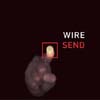 If a keyboard cowboy steals your voice it might just serve your server right for trying to read and burn the last of the Mohicans. With one foul swoop Colin Newman proclaims punk rock meaningless and declares the joy of his latest bastard 'heavy metal dancefloor' bad vibing it up like there's no tomorrow. Those four negative horsemen Wire celebrate the art of stopping, which is where it's at - addictive repetitive mega-riffing retooled on hardrive and nailed down fast in paranoiac fits.
If a keyboard cowboy steals your voice it might just serve your server right for trying to read and burn the last of the Mohicans. With one foul swoop Colin Newman proclaims punk rock meaningless and declares the joy of his latest bastard 'heavy metal dancefloor' bad vibing it up like there's no tomorrow. Those four negative horsemen Wire celebrate the art of stopping, which is where it's at - addictive repetitive mega-riffing retooled on hardrive and nailed down fast in paranoiac fits.
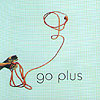 The straight-ahead pop music on this German trio's self-titled secondrelease tends to be based on the instrumentation of bass, drums, guitarand vocals with a leaning towards some electronic augmentation.Although the presence of synthesizer can be fairly liberal at timeswith a hint of drum machine, there's no great risk of it being overusedas it always seems appropriate within the context. Their choices ofcertain chordal intervals paired with obvious guitar and synth patchesat times remind me of some of the more mainstream British bands of the80s, which is a good thing. "Untem im Strom" leads off the disc with achoppy, jangly guitar progression matched with vocals that sneaks inthe rhythm section on the upbeat to steadily drive the tune through itsmarked sections. Of the disc's ten tracks, the dance-pulsed, graduallyrocking "Tremble" would be the only one sung entirely in English withthe remainder mostly in the group's native tongue. The cadence of thevocal delivery for some numbers feels a bit awkward at first until themelody becomes the focal point and the music settles in around it. Thewhispy vocals, strummy acoustic guitar and plucked bass of "Hannover"is lead by a steady, puffy-snared drum machine while mild pianoflourishes and buzzing slide guitar trickle throughout. "Stop" thrashesalong to bursts of siren keyboards, pounding tom-toms and dirty basswhich shift from jagged to slick and back again within the span of itsseventy-five seconds. Go Plus' musicianship is solid and theirsongwriting style is fairly consistent from track to track with somefairly cool progressions and hooks. For the most part, these keyelements are underused but there are some worthwhile moments.
The straight-ahead pop music on this German trio's self-titled secondrelease tends to be based on the instrumentation of bass, drums, guitarand vocals with a leaning towards some electronic augmentation.Although the presence of synthesizer can be fairly liberal at timeswith a hint of drum machine, there's no great risk of it being overusedas it always seems appropriate within the context. Their choices ofcertain chordal intervals paired with obvious guitar and synth patchesat times remind me of some of the more mainstream British bands of the80s, which is a good thing. "Untem im Strom" leads off the disc with achoppy, jangly guitar progression matched with vocals that sneaks inthe rhythm section on the upbeat to steadily drive the tune through itsmarked sections. Of the disc's ten tracks, the dance-pulsed, graduallyrocking "Tremble" would be the only one sung entirely in English withthe remainder mostly in the group's native tongue. The cadence of thevocal delivery for some numbers feels a bit awkward at first until themelody becomes the focal point and the music settles in around it. Thewhispy vocals, strummy acoustic guitar and plucked bass of "Hannover"is lead by a steady, puffy-snared drum machine while mild pianoflourishes and buzzing slide guitar trickle throughout. "Stop" thrashesalong to bursts of siren keyboards, pounding tom-toms and dirty basswhich shift from jagged to slick and back again within the span of itsseventy-five seconds. Go Plus' musicianship is solid and theirsongwriting style is fairly consistent from track to track with somefairly cool progressions and hooks. For the most part, these keyelements are underused but there are some worthwhile moments. Hordes of NYC hipsters already know that the "mutant disco" punk/dancehybrid sound of the early 80's is experiencing a major resurgence ofinterest. The original heroes of the genre—bands like Liquid Liquid, 23Skidoo, A Certain Ratio, and Gang of Four—are being excavated andre-released. Inevitably, a legion of new artists are having a lot offun rediscovering these sounds and making their own form of retrodance/punk, with uneven results. Trevor Jackson's Output Recordings,home to a cadre of retro-disco and new-new-wave artists, have jumped onthis bandwagon in a big way. Trying to make their own 21st centuryversion of the seminal Disco not Disco compilation, Output has assembled some of the best songs and 12" mixes on the label for their Channel 2comp. The disc opens with 7 Hurtz' "Malibu," a shimmering retro-housetrack which tries (and fails) to sound like FPU's "Ocean Drive."Manhead's "Doop" is a fantastically corny bebop jazz-disco hybrid thatrecalls Miles Davis' ill-advised foray into dance and hiphop.Blackstrobe's dancefloor-stormer "Me and Madonna" is on the verge ofsounding like Gina X Performance's "Nice Mover," but eventuallydeclines into electroclash cliches. Possibly the best reason to buythis compilation is the only appearance of LCD Soundsystem's "Losing MyEdge" on CD. For those who don't already know, "Losing My Edge" is thefunniest, most infectious 12" dance single to be released in recentmemory. Over retardedly low-fi beatbox and bass hits, the DFA's JamesMurphy does a Mark E. Smith-style monologue boasting all of his hipstercredentials: he was there at the first Can show, he was there at theParadise Garage with Larry Levan, he was the first to play Daft Punk atCBGB's. At the end of the song, he yells out a hilarious roll-call ofevery so-called "hip" artist from the past thirty years: "This Heat,Pere Ubu, The Human League, The Normal, Lou Reed..." and etc. adnauseum. By removing the minor-key bassline andupping the disco quotient for their 12" re-recording of "Olio," NYCpunk-disco band The Rapture manage to sound a little less like The Curethan the song's first appearance on their debut Mirror. TheZongamin remix of Playgroup's underground dance hit "Make it Happen" isawesome, pushing the intensely rhythmic ESG-style sassiness that theoriginal only hinted at. Dempsey's "ODB on the Run" is a chaoticallyfunny avant-dance track about Big Baby Jesus' run-in with the law andthe disc ends with a weirdly out-of-place, laptop-treated guitar balladby The Boy Lucas. Like most compilations of this sort, this is aninconsistent listen with a few gems that may or may not be worth theprice.
Hordes of NYC hipsters already know that the "mutant disco" punk/dancehybrid sound of the early 80's is experiencing a major resurgence ofinterest. The original heroes of the genre—bands like Liquid Liquid, 23Skidoo, A Certain Ratio, and Gang of Four—are being excavated andre-released. Inevitably, a legion of new artists are having a lot offun rediscovering these sounds and making their own form of retrodance/punk, with uneven results. Trevor Jackson's Output Recordings,home to a cadre of retro-disco and new-new-wave artists, have jumped onthis bandwagon in a big way. Trying to make their own 21st centuryversion of the seminal Disco not Disco compilation, Output has assembled some of the best songs and 12" mixes on the label for their Channel 2comp. The disc opens with 7 Hurtz' "Malibu," a shimmering retro-housetrack which tries (and fails) to sound like FPU's "Ocean Drive."Manhead's "Doop" is a fantastically corny bebop jazz-disco hybrid thatrecalls Miles Davis' ill-advised foray into dance and hiphop.Blackstrobe's dancefloor-stormer "Me and Madonna" is on the verge ofsounding like Gina X Performance's "Nice Mover," but eventuallydeclines into electroclash cliches. Possibly the best reason to buythis compilation is the only appearance of LCD Soundsystem's "Losing MyEdge" on CD. For those who don't already know, "Losing My Edge" is thefunniest, most infectious 12" dance single to be released in recentmemory. Over retardedly low-fi beatbox and bass hits, the DFA's JamesMurphy does a Mark E. Smith-style monologue boasting all of his hipstercredentials: he was there at the first Can show, he was there at theParadise Garage with Larry Levan, he was the first to play Daft Punk atCBGB's. At the end of the song, he yells out a hilarious roll-call ofevery so-called "hip" artist from the past thirty years: "This Heat,Pere Ubu, The Human League, The Normal, Lou Reed..." and etc. adnauseum. By removing the minor-key bassline andupping the disco quotient for their 12" re-recording of "Olio," NYCpunk-disco band The Rapture manage to sound a little less like The Curethan the song's first appearance on their debut Mirror. TheZongamin remix of Playgroup's underground dance hit "Make it Happen" isawesome, pushing the intensely rhythmic ESG-style sassiness that theoriginal only hinted at. Dempsey's "ODB on the Run" is a chaoticallyfunny avant-dance track about Big Baby Jesus' run-in with the law andthe disc ends with a weirdly out-of-place, laptop-treated guitar balladby The Boy Lucas. Like most compilations of this sort, this is aninconsistent listen with a few gems that may or may not be worth theprice.- LCD Soundsystem - Losing My Edge
- The Rapture - Olio
- Playgroup - Make It Happen (Zongamin Remix)
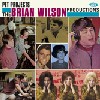 I am definitely and unashamedly one of the legion of obsessive fans ofBrian Wilson. I wholeheartedly agree with all of the critics who nevertire of declaring Wilson a genius of pop songcraft and production. Ihave faithfully collected all the prime Beach Boys material—LPreissues, box sets, 45s, live albums, bootlegs, "Best Of" albums, etc.To my already absurd Wilson collection, I can now add this interestingarchival disc, recently released by Ace Records of London. Ace Recordsis a label for music collectors and junkies, specializing inre-releases of forgotten rock n' roll treasures and lost musicalexotica from the 18's and 60's. This disc may be their mostirresistable release yet, as it is the first to compile all of thenon-Beach Boys material produced by Brian Wilson in his sixties heyday.Someone has obviously gone to a lot of trouble to track down all thoserare 45s and lesser-known one-off projects. As an archival compilation,Pet Projectsis unparalleled. As a listening experience, however, the disc issomewhat more problematic. It is a pure pleasure to hear the first twotracks, a pair of Phil Spector-influenced teenage symphonies performedby Sharon Marie, a girlfriend of Beach Boy Mike Love. Wilson and Love'smediocre ballads are transformed by Brian's studio genius intoover-the-top orchestral blowouts, matching (and often exceeding) thebar set by Spector, Brian's hero and a huge influence on the evolutionof his studio sound. It's hard to remember that forty years before hestarted murdering B-movie actresses, Phil Spector was the innovator ofstudio-created, multi-layered pop masterpieces that influenced ageneration of producers. Spector and Wilson became the first "star"producers—their production genius was recognized as the primary elementof the music, more important than the song or the singer. Wilson andthree of his friends called themselves The Survivors, and cut a one-offsingle "Pamela Jean" with the instrumental b-side "After the Game." Thea-side recalls the classic Beach Boys sound of "Help Me, Rhonda," butthe b-side is an early preview of the complex, emotive instrumentaltracks that Brian would write and produce for Pet Sounds a couple yearslater. There is also a glimpse here of Brian Wilson, the acid casualty:Dean Torrance (of surf-pop duo Jan & Dean), using the fictitiousband name The Lauging Gravy, recorded a version of Brian's psychedelicbarbershop quartet song "Vegetables," originally recorded for thenever-completed Smile. The song sounds just as bizarre here as on the numerous Smilebootlegs. The rest of the disc is dominated by 45s released by Wilson'sgirl groups The Honeys, Rachel and the Revolvers and American Spring.Although most of these groups are long-forgotten for good reasons,there is a naive charm and excitement to songs like "Pray for Surf" and"He's a Doll" that recall everything that is wonderful and beguilingabout the girl groups of the early sixties. These songs would not beout of place on Music for Pussycats (the Boyd Rice-compiled love-letter to girl-group pop). Pet Projects is a unique, if somewhat frustrating, look back at the "lost" treasures of one of pop music's most fascinating talents.
I am definitely and unashamedly one of the legion of obsessive fans ofBrian Wilson. I wholeheartedly agree with all of the critics who nevertire of declaring Wilson a genius of pop songcraft and production. Ihave faithfully collected all the prime Beach Boys material—LPreissues, box sets, 45s, live albums, bootlegs, "Best Of" albums, etc.To my already absurd Wilson collection, I can now add this interestingarchival disc, recently released by Ace Records of London. Ace Recordsis a label for music collectors and junkies, specializing inre-releases of forgotten rock n' roll treasures and lost musicalexotica from the 18's and 60's. This disc may be their mostirresistable release yet, as it is the first to compile all of thenon-Beach Boys material produced by Brian Wilson in his sixties heyday.Someone has obviously gone to a lot of trouble to track down all thoserare 45s and lesser-known one-off projects. As an archival compilation,Pet Projectsis unparalleled. As a listening experience, however, the disc issomewhat more problematic. It is a pure pleasure to hear the first twotracks, a pair of Phil Spector-influenced teenage symphonies performedby Sharon Marie, a girlfriend of Beach Boy Mike Love. Wilson and Love'smediocre ballads are transformed by Brian's studio genius intoover-the-top orchestral blowouts, matching (and often exceeding) thebar set by Spector, Brian's hero and a huge influence on the evolutionof his studio sound. It's hard to remember that forty years before hestarted murdering B-movie actresses, Phil Spector was the innovator ofstudio-created, multi-layered pop masterpieces that influenced ageneration of producers. Spector and Wilson became the first "star"producers—their production genius was recognized as the primary elementof the music, more important than the song or the singer. Wilson andthree of his friends called themselves The Survivors, and cut a one-offsingle "Pamela Jean" with the instrumental b-side "After the Game." Thea-side recalls the classic Beach Boys sound of "Help Me, Rhonda," butthe b-side is an early preview of the complex, emotive instrumentaltracks that Brian would write and produce for Pet Sounds a couple yearslater. There is also a glimpse here of Brian Wilson, the acid casualty:Dean Torrance (of surf-pop duo Jan & Dean), using the fictitiousband name The Lauging Gravy, recorded a version of Brian's psychedelicbarbershop quartet song "Vegetables," originally recorded for thenever-completed Smile. The song sounds just as bizarre here as on the numerous Smilebootlegs. The rest of the disc is dominated by 45s released by Wilson'sgirl groups The Honeys, Rachel and the Revolvers and American Spring.Although most of these groups are long-forgotten for good reasons,there is a naive charm and excitement to songs like "Pray for Surf" and"He's a Doll" that recall everything that is wonderful and beguilingabout the girl groups of the early sixties. These songs would not beout of place on Music for Pussycats (the Boyd Rice-compiled love-letter to girl-group pop). Pet Projects is a unique, if somewhat frustrating, look back at the "lost" treasures of one of pop music's most fascinating talents. - Sharon Marie - Run-Around Lover
- The Survivors - After the Game
- The Laughing Gravy - Vegetables


